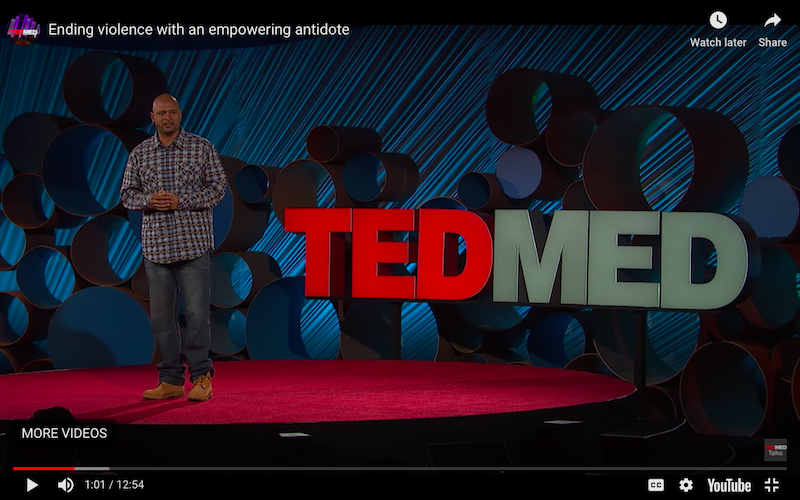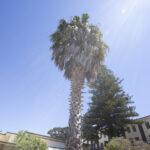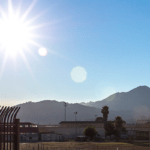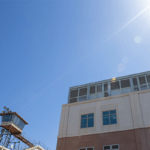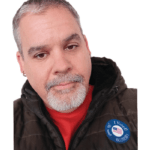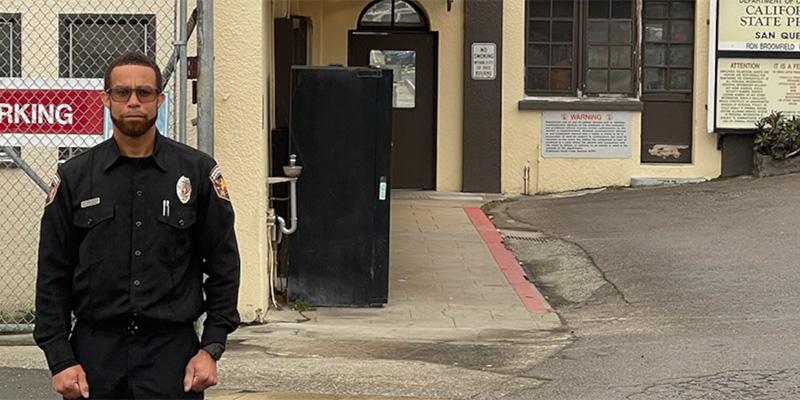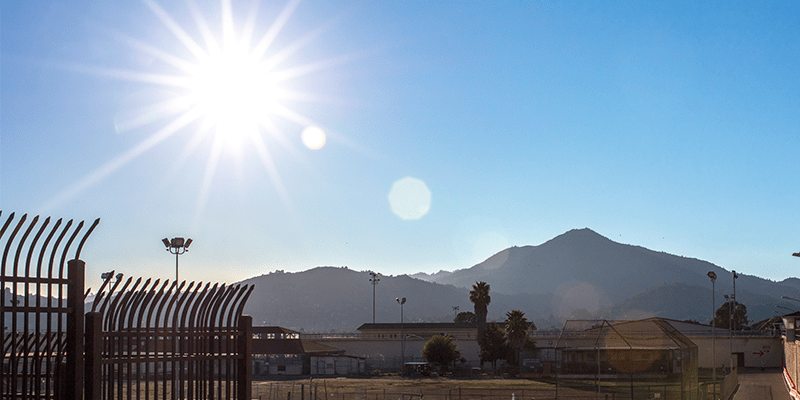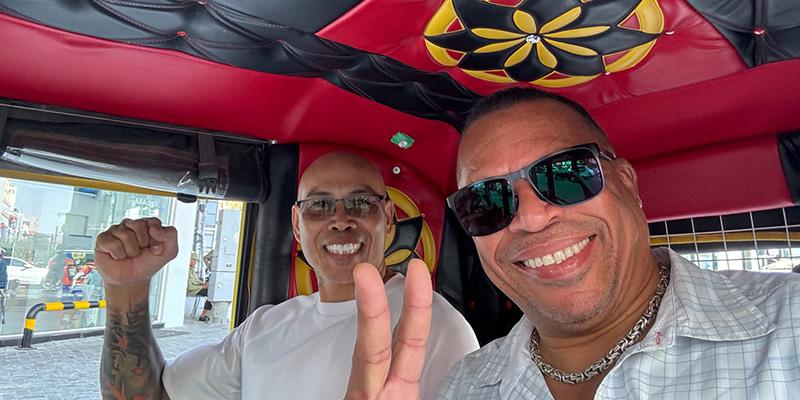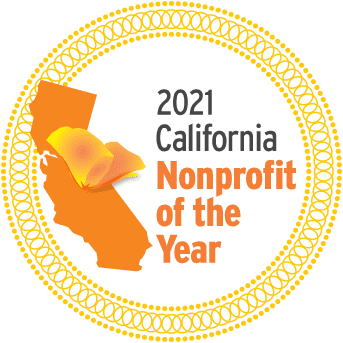Prison University Project graduate and community mentor Sam Vaughn recounts how a program offering radical interventions of love and support to the most violent young men has dramatically reduced the homicide rate in one of the most dangerous US cities. Sam is a TEDMED 2015 speaker and Neighborhood Change Agent in the City of Richmond, California.
A person can have a healthy heart and diseased lungs, or a healthy brain and kidney failure. Would you consider that person healthy? Society is quite similar. Until we create a culture of health that is inclusive of all citizens, we cannot consider ourselves a healthy society. Thus, we cannot create a healthy society until we deal with issues of personal security, like crime and gun violence.
As I mention in my TEDMED talk, at the Office of Neighborhood Safety, we identify individuals who are most likely to be perpetrators or victims of gun violence. We work with them through a program called the Operation Peacemaker Fellowship, a seven-step process to help them become self- and socially-aware of their roles in society, and to affirm their God-given and Constitutional rights to happy, safe and successful lives. Perhaps most importantly, we meet and accept them where they are, with no judgement, and recognize the social, structural and strategic injustices that they have faced most of their lives. We challenge them to accept that, despite those injustices, they still have a responsibility to themselves, to their families, and to their communities to do better.
The first step of the Fellowship, and one that is vital to our success, is for us to build a relationship with these individuals. Most young people don’t care what you know until they know that you care. Once trust is established, we create a LifeMAP with them, helping them see that a different future is possible by showing the changes that others have made. We help them envision a future as bright and fulfilling as they can possibly imagine, and we connect them to resources and service providers that can help make that dream become a reality. We connect them to mentors and coaches, a group we call Elders, who are older successful men of color who have successfully made changes in their own lives, and are now reaching back to help others.

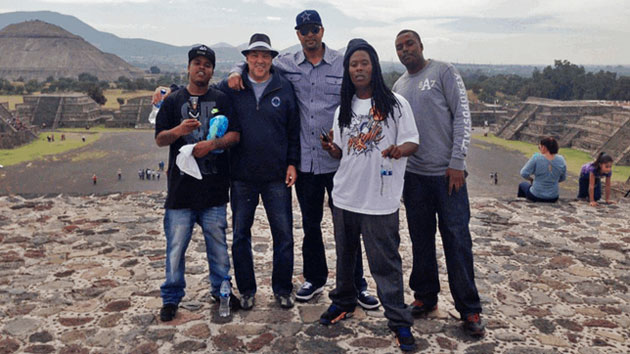 [pictured] Sam Vaughn, Devone Boggan, and Fellows on a retreat at the Teotihuacan Pyramid of the Sun, Mexico City.
[pictured] Sam Vaughn, Devone Boggan, and Fellows on a retreat at the Teotihuacan Pyramid of the Sun, Mexico City.
Additionally, in a step riddled with great risk but even greater reward, we take the Fellows on trips around the globe, to help them see how good life can possibly be and get them addicted to living. The catch to this amazing travel opportunity is that they must travel with someone from what would be considered a “rival community.” As they begin to see themselves, and the world they live in, in a different light, they start to see each other differently as well.
Because we believe hard work should be rewarded, we provide a stipend to our Fellows, a practice that is seen as controversial by some. Critics frequently disparage this, claiming that we are paying criminals not to commit crime. Let me counter that by saying that, when I was young, my parents would give me $5 for every “A” I got on my report card. Were they paying me to go to school? Absolutely not– they were rewarding me for working so hard. We aren’t paying these young men for what they aren’t doing. We are rewarding them for what they are doing.
Our final step is to introduce our Fellows to mainstream society and the workforce through subsidized employment. In this stage, they develop a strong work ethic, effective workplace communication and the skills of being a team player. Eventually, they become employable by their own means, without subsidy.
Frankly, our goal is to provide these individuals with what every young person in this country receives when they grow up in a healthy, nurturing community. We’ve been successful. Of those who have participated in our Fellowship, 94% are alive, 84% haven’t been injured by a firearm, and 79% have not been suspects in new firearm-related crimes. During the period of our interventions with these youth, the city of Richmond, California has experienced a 66% reduction in firearm assaults and a 55% reduction in firearm related homicides between 2007 and 2015. By attending to these young men who are and have been traditionally underserved and abandoned by the mainstream services platform, the City of Richmond is creating a culture of health in a once dangerous city that is today a much more desirable place to live, learn, work and play.
You can watch Sam’s TEDMED talk here.
Please note that the Prison University Project became Mount Tamalpais College in September 2020.
